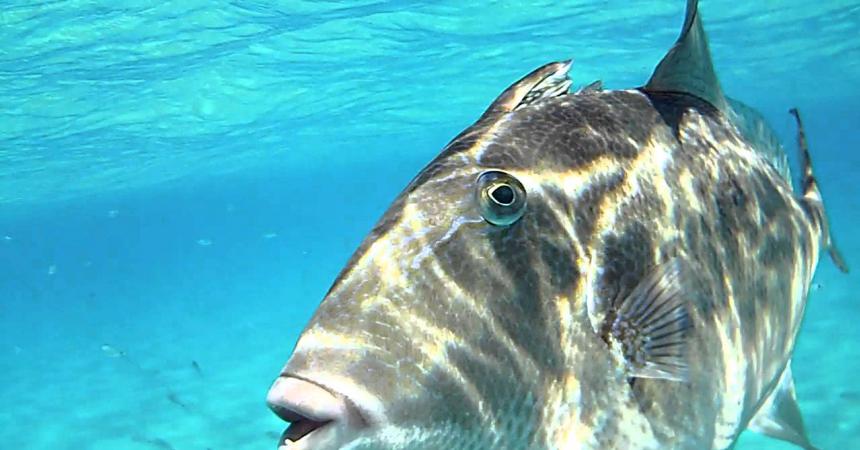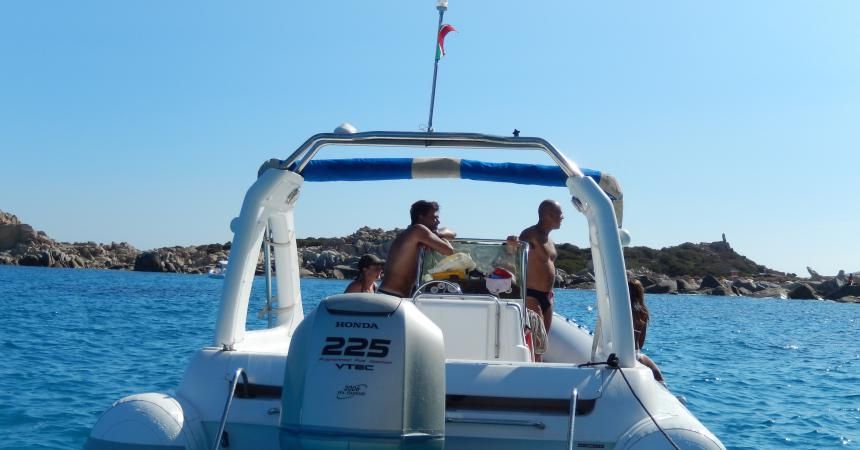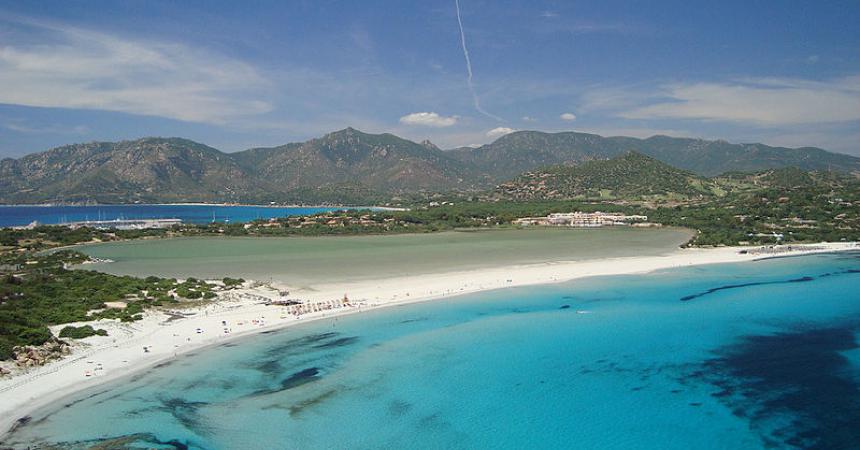I began practicing freediving by chance, in Villasimius. In front of one of the most beautiful beaches on the South-West Sardinian coast, the beach of the Simius, at about 100mt from the shore, there lives a colony of Triggerfish – a local attraction very much appreciated by both locals and tourists when the Mistral wind doesn’t allow one to venture too far. Although I normally spend most of my summer holidays there, I had never witnessed the theatrical show Triggerfish have to offer.
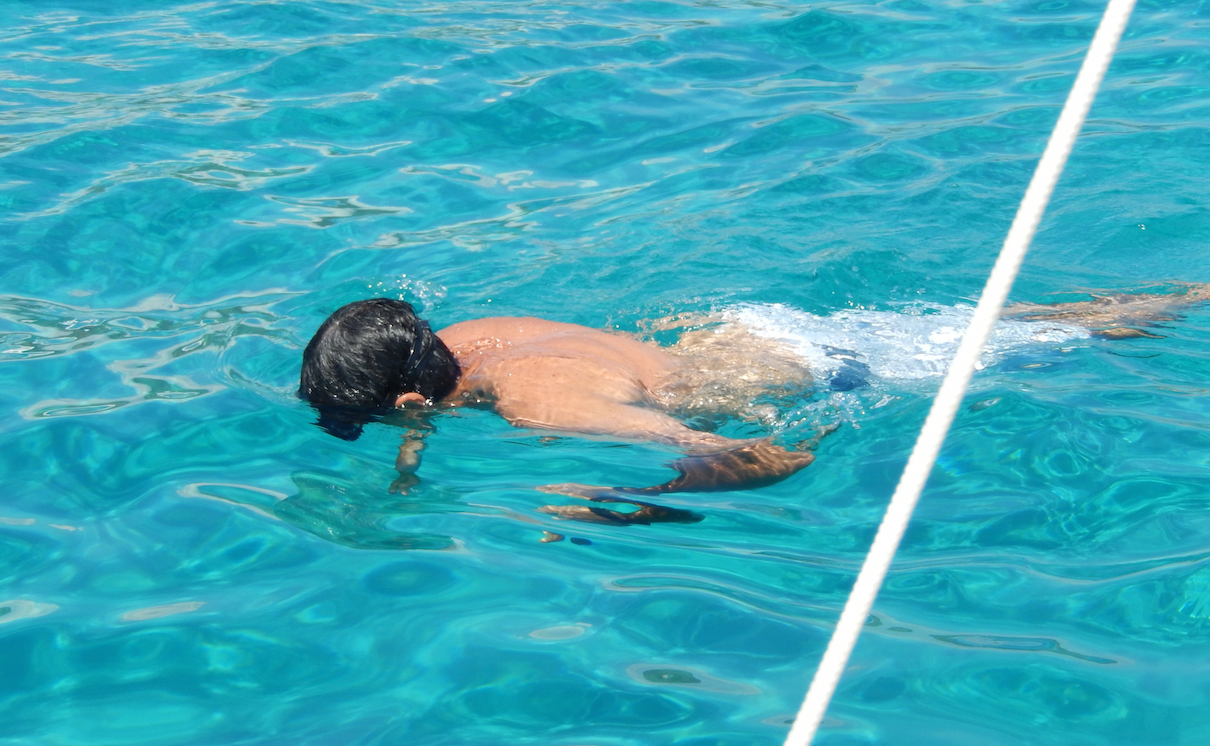
I put my mask on, fighting and winning my natural aversion to cold water, and, as if by magic, three curious Triggerfish appear from underneath my fins. I see them hypnotized by a strange black shape, placidly lying on the sandy seabed, flaunting big black fins rather than a magic wand. The show lasts indefinitely and I spend that time between astonishment and admiration for that performance of man and fish. I return to Milan, and immediately look for a freediving course. I find one that starts in September a short walk from my office. It is the sign I was waiting for. I enroll and here I am, at 21.30 on an autumnal Wednesday like any other, in the dark room of a public pool, anxiously looking forward to holding my breath.
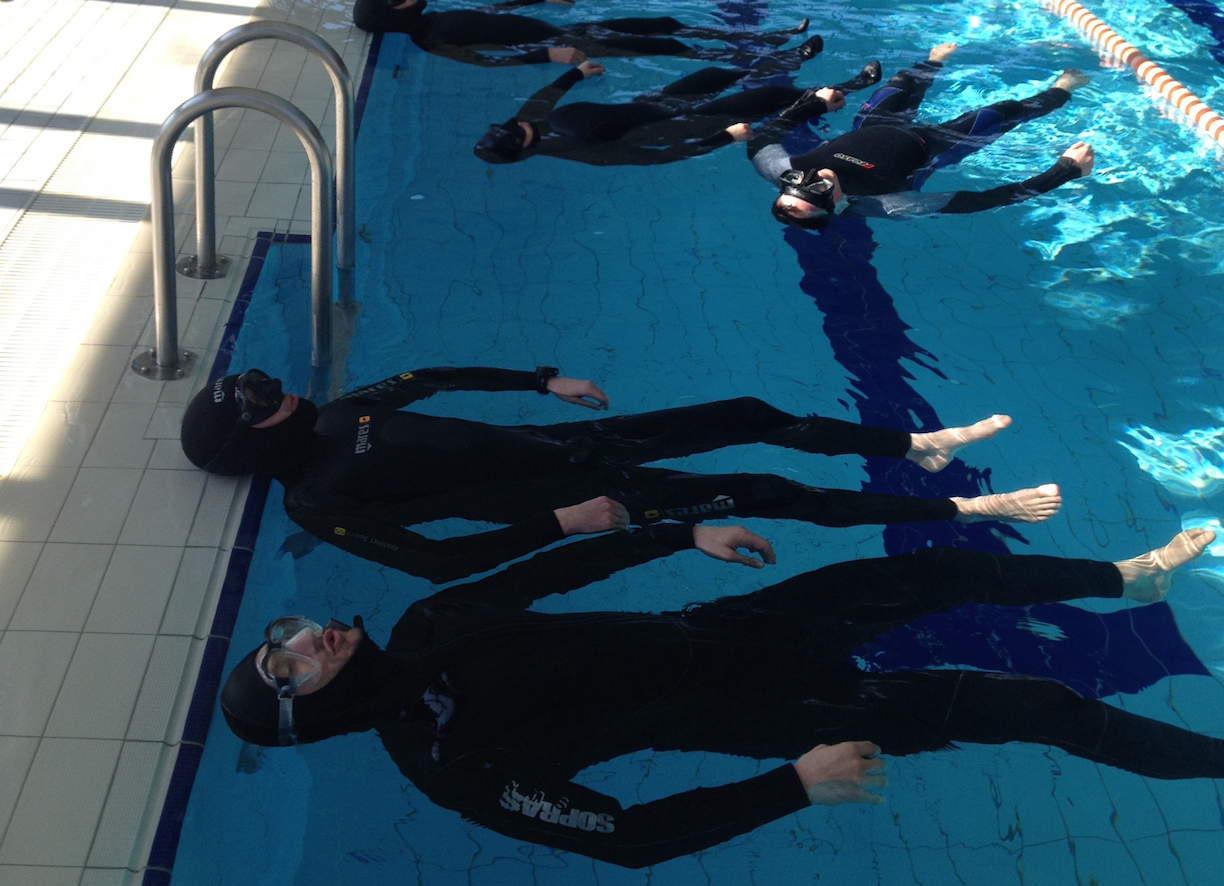
My path is marked; the statics while driving the motorway, the counting of tiles in the swimming pool, the first pair of carbon fins, the custom-made wetsuit, ‘’same price as the others anyway’’, infinite queues to get to Liguria, the ear nose and throat specialist on speed dial, loads of lost snorkels and a first spear gun for me whom ‘’I’ll never shoot a living creature’’. What makes my experience similar to others? What do freedivers all over the world have in common? What inspires someone to choose such a particular discipline? This question has always intrigued me, both out of curiosity and also because of a professional inclination. Whenever I have tried to put it to the experts, I came home with more questions than answers: ‘’A scuba diver dives to look around, a freediverdives to look inside himself’’. This famous quote by Umberto Pelizzari, icon of the freediving world, effectively represents the inability to rationally express something we feel but we cannot give voice to. The limbic system, the part of our brain responsible for all our feelings and the one which guides our decision making processes, that part which decided I’d choose freediving, doesn’t have any ability to explain with words. We feel that freediving is the most beautiful of all disciplines, the richest and most soul nourishing of all, and we spend our winters imagining the sea liberating us from the gravity of our routines.
‘’The sea does not belong to tyrants…thirty feet below its surface their power ceases, their influence dies out and their domination disappears! Ah, Monsieur, one must live – live within the ocean! Only there can one be independent! Only there I do have no masters! There I am free!”
Jules Verne
Here at Moving Limits we have tried to look at freedivers with a rational and scientific approach and, with Professor Furio Camillo’s support (Bologna University) we located what the main motivations to choose freediving seem to be; we’ve then grouped them by homogenous characteristics.
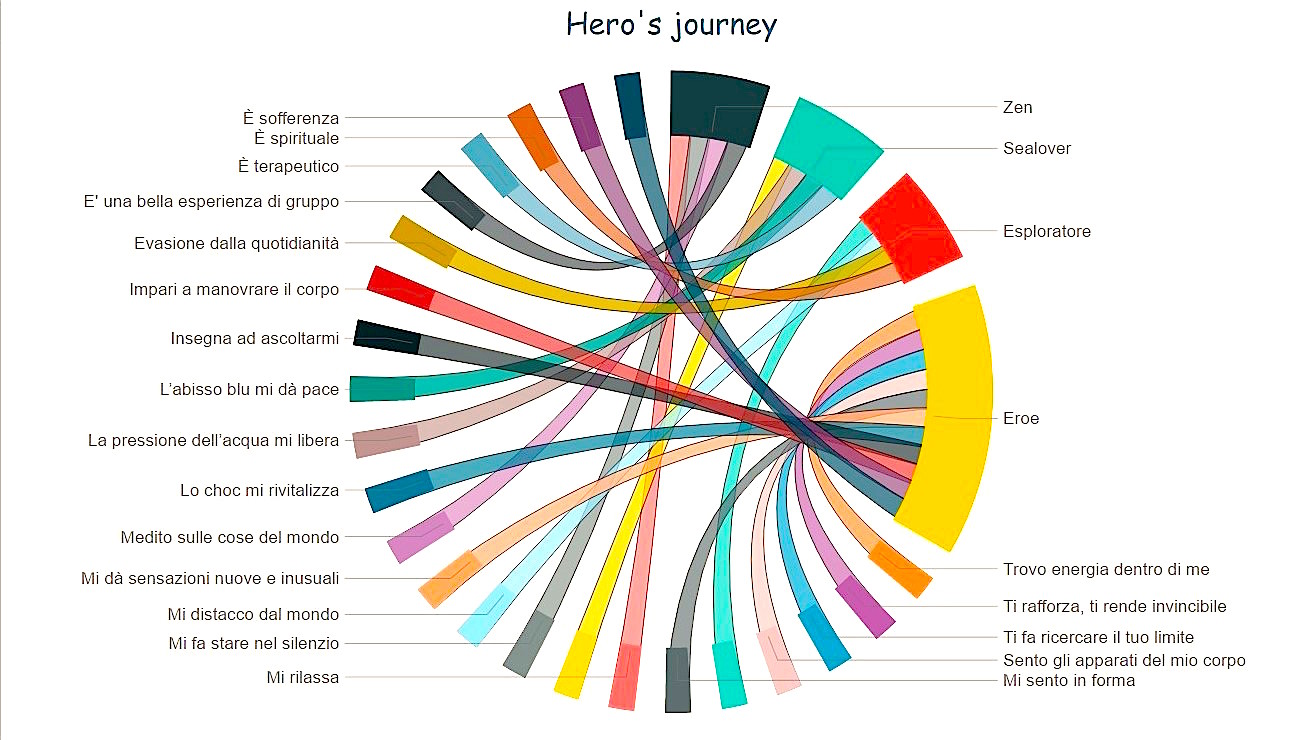
How did we do that?
Fifty freedivers of various backgrounds were invited to participate to focus groups and the results obtained from these groups were used to develop a survey which we intend to present, over the next few months, to a much larger international group of people.
Ciao,
Giacomo

